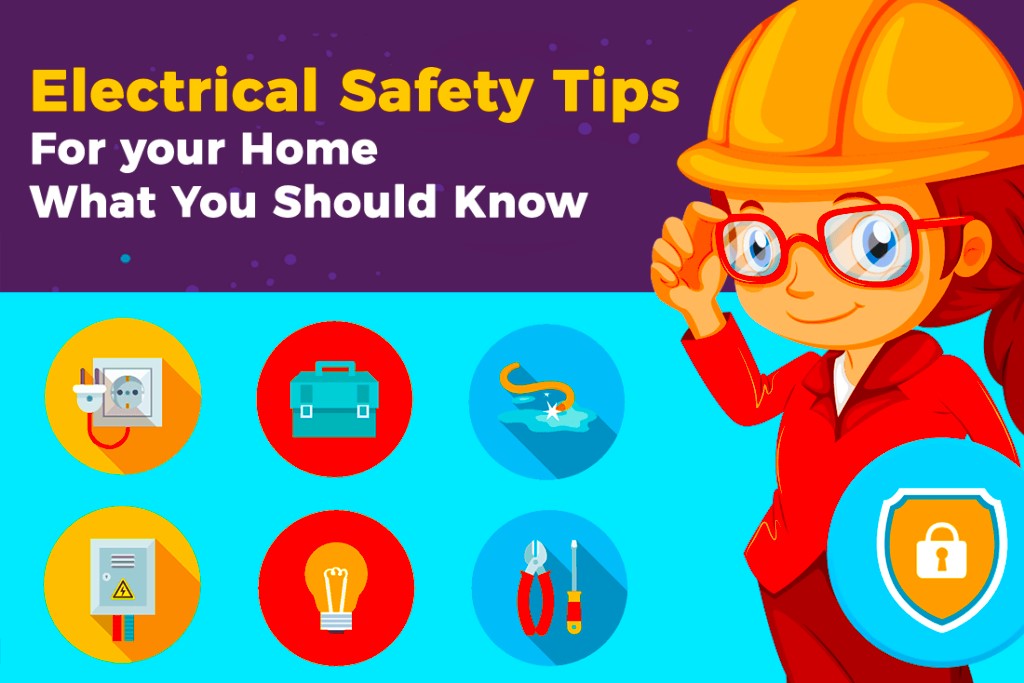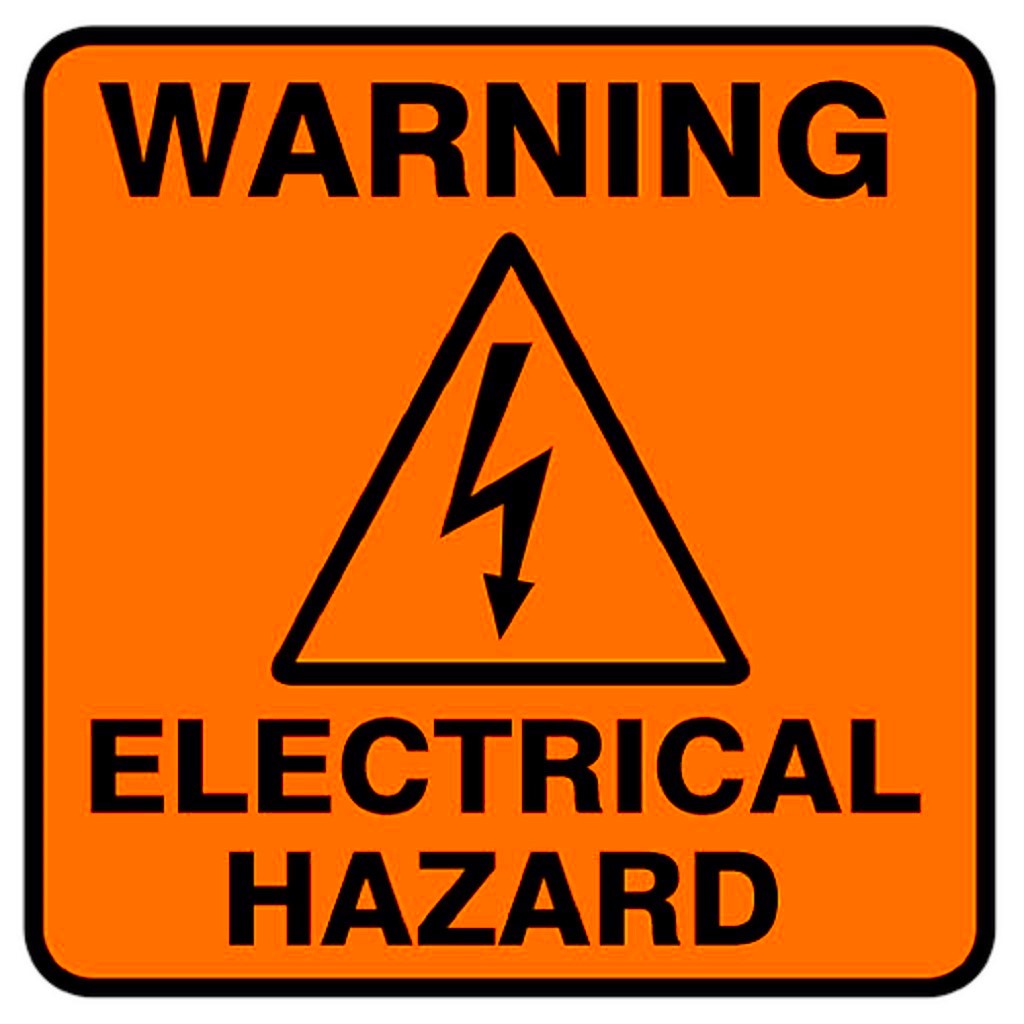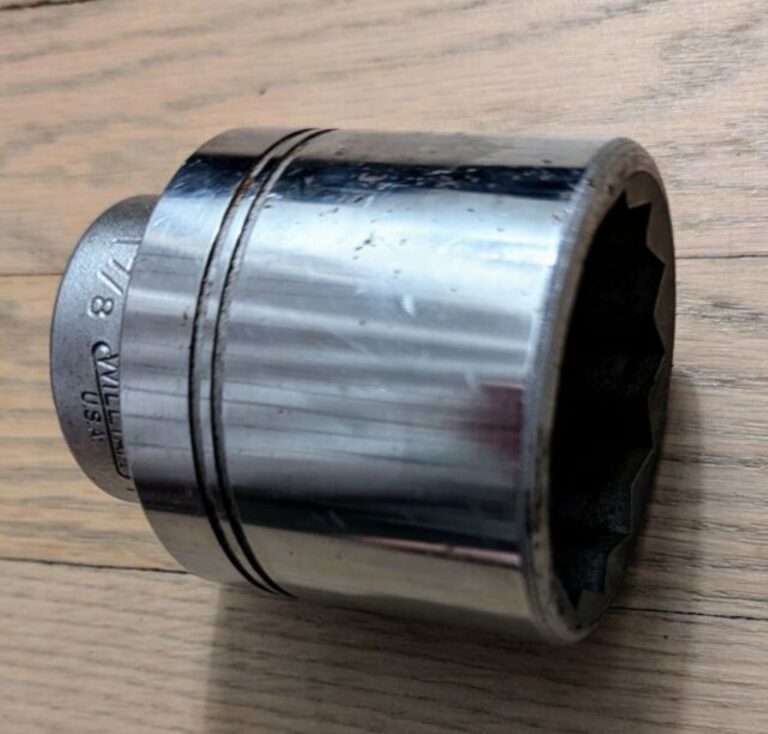In the heart of every home lies a network of electrical systems that power our daily lives. While electricity has become an indispensable part of modern living, it also brings with it the potential for accidents that can pose serious threats to the safety of our households. Preventing electrical accidents is not only a matter of convenience but a fundamental responsibility for homeowners. In this extensive guide, we will explore in-depth strategies and practical tips to fortify your home against electrical hazards, ensuring a safe and secure living environment.
Here are some Tips for Electrical Safety at Home

Understanding the Risks:
To embark on a journey of preventing electrical accidents, it is crucial to first grasp the potential risks associated with residential electrical systems. Electrical accidents can manifest in various forms, ranging from minor shocks to catastrophic fires and even fatalities. Faulty wiring, overloaded circuits, damaged appliances, and human error are common culprits behind these incidents. By understanding these risks, we lay the groundwork for effective preventive measures to mitigate potential dangers.
Regular Inspection and Maintenance:
A cornerstone of electrical safety at home is the regular inspection and maintenance of the entire electrical system. Over time, wear and tear can compromise the integrity of wiring, connections may loosen, and appliances may degrade. Scheduling periodic inspections by a qualified electrician is a proactive step to identify and rectify potential issues before they escalate. This vigilant approach significantly reduces the risk of electrical accidents.
During inspections, professionals can assess the condition of the electrical panel, check for loose or damaged wiring, and ensure that all connections are secure. Additionally, they can verify the functionality of safety devices such as circuit breakers and ground fault circuit interrupters (GFCIs). A well-maintained electrical system not only enhances safety but also contributes to the overall longevity and efficiency of the system.
Avoiding Overloaded Circuits:
Overloaded circuits are a common cause of electrical fires. Proper distribution of electrical loads across circuits is essential for preventing overloads. Avoid the temptation to connect too many appliances to a single outlet, as this can strain the circuit and increase the risk of overheating. Using power strips equipped with surge protectors can add an extra layer of defence against voltage spikes.
Understanding the wattage capacity of each circuit is crucial. Appliances with high power requirements, such as space heaters or air conditioners, should be connected to dedicated circuits to prevent overloading. If tripped breakers become a recurrent issue, it is indicative of an overloaded circuit and should be promptly addressed.
Quality Electrical Appliances:
Investing in high-quality electrical appliances is a proactive measure in preventing accidents. Reputable manufacturers adhere to stringent safety standards, and products from such companies are more likely to be built with safety in mind. Look for safety certifications on appliances, such as the UL or CSA mark, indicating compliance with recognized safety standards.
Regularly inspect cords and plugs for signs of wear, fraying, or damage. Damaged cords can pose a serious risk of electrical shock or fire. Promptly replace any compromised components to maintain the safety and integrity of your electrical devices. Additionally, adhere to manufacturer guidelines for usage and maintenance of appliances, ensuring their continued safe operation.
Ground Fault Circuit Interrupters (GFCIs):
Installing GFCIs is a pivotal step in enhancing electrical safety, particularly in areas where water is present, such as kitchens, bathrooms, and outdoor outlets. GFCIs monitor the flow of electrical current and swiftly shut off power when imbalances are detected. This instantaneous response significantly reduces the risk of electric shocks.
Homeowners should install GFCIs in all outlets near water sources, including those in basements, garages, and outdoor spaces. Regular testing of GFCIs is essential to ensure their proper functioning. GFCIs have proven to be an effective and cost-efficient means of preventing electrical accidents, making them a valuable addition to home safety measures.
Proper Outdoor Wiring:
Outdoor electrical systems face unique challenges due to exposure to the elements. Ensuring the safety of outdoor wiring involves implementing specific measures. All outdoor outlets should be weatherproof and equipped with appropriate covers to shield them from rain, snow, and other environmental factors. Outdoor-rated extension cords should be used for any yard work or outdoor activities.
Regular inspections of outdoor wiring are crucial. Look for signs of wear, damage, or deterioration, and promptly address any issues. Additionally, secure outdoor wiring to prevent tripping hazards and safeguard against accidental damage. By maintaining outdoor electrical systems, homeowners contribute to overall home safety and protect against potential electrical accidents.
Childproofing Outlets:
For households with young children, childproofing electrical outlets is paramount. Curious fingers and a lack of understanding about the dangers of electricity make children particularly vulnerable to electrical accidents. Outlet covers or tamper-resistant receptacles can be used to prevent access to electrical sockets.
Educating children about the hazards of playing with electrical outlets and cords is equally important. Instil a sense of responsibility by teaching them not to insert foreign objects into outlets and explaining the potential dangers. By combining childproofing measures with education, parents create a safer environment for their children and reduce the risk of electrical accidents.

Education and Awareness:
Promoting a culture of safety within the household involves educating all family members about electrical risks and preventive measures. A well-informed household is better equipped to identify and address potential hazards, fostering a collective commitment to electrical safety. Consider conducting regular safety drills that include emergency procedures in case of electrical accidents.
Create awareness about responsible electricity use, emphasizing the importance of turning off appliances when not in use and using them according to manufacturer guidelines. Encourage family members to report any electrical issues promptly to facilitate timely intervention. By instilling a sense of responsibility and awareness, homeowners contribute to a safer living environment for everyone in the household.
Emergency Preparedness:
Despite the best efforts in prevention, emergencies can still occur. Equipping your home with essential safety tools is a critical aspect of emergency preparedness. Smoke detectors and fire extinguishers are indispensable in safeguarding against electrical fires. Ensure that smoke detectors are strategically placed throughout the home, particularly in bedrooms and common areas.
Regularly test smoke detectors to verify their functionality, and replace batteries at least once a year. Familiarize yourself and your family with the operation of fire extinguishers, placing them in accessible locations throughout the home. Develop an emergency action plan that includes procedures for shutting off power in case of electrical emergencies. Being prepared enhances the ability to respond effectively to unforeseen situations and minimizes the potential impact of electrical accidents.
In the dynamic landscape of modern living, where electricity powers our homes and fuels our daily activities, prioritizing safety is paramount. Preventing electrical accidents requires a multifaceted approach that encompasses regular inspections, prudent usage of electrical appliances, and a commitment to education and awareness. By understanding the potential risks, implementing preventive measures, and fostering a culture of safety within our households, we contribute to the well-being of our families and create a secure living environment.
Home Electrical Safety is not a one-time effort but an ongoing commitment. Regular maintenance, periodic inspections, and a proactive stance toward electrical safety are investments in the longevity of our homes and the protection of our loved ones. As technology continues to advance, so should our efforts to ensure that our homes remain not only convenient but, above all, safe. Empowering home safety is not just a catchphrase; it’s a call to action for every homeowner to make electrical safety a top priority in their daily lives.
Frequently Asked Questions (FAQs) on Home Electrical Safety:
Why is home electrical safety important?
– Home electrical safety is crucial to prevent accidents, such as electric shocks, fires, and fatalities. It ensures the well-being of residents and protects property from potential hazards associated with electrical systems.
How often should I have my home’s electrical system inspected?
– It is advisable to have a professional electrician inspect your home’s electrical system at least once every 5 to 10 years, or sooner if you notice any signs of electrical issues.
What are the common signs of electrical problems in a home?
– Common signs include flickering lights, frequently tripped circuit breakers, sparking outlets, burning smells, and outlets or switches that are warm to the touch. Any of these signs should prompt immediate attention from a qualified electrician.
How can I childproof electrical outlets in my home?
– Use outlet covers or install tamper-resistant receptacles (TRRs) to prevent children from accessing electrical sockets. Educate children about the dangers of playing with electrical outlets and cords to reinforce safety.
What is a GFCI, and where should I install it in my home?
– A Ground Fault Circuit Interrupter (GFCI) is a safety device that quickly shuts off power when it detects imbalances in electrical currents, reducing the risk of electric shocks. Install GFCIs in areas with water exposure, such as kitchens, bathrooms, outdoor outlets, and garages.
How do I avoid overloading circuits in my home?
– Distribute electrical loads evenly across circuits, avoid connecting too many appliances to a single outlet, and use power strips with surge protectors. Be aware of the wattage capacity of each circuit, and consider dedicated circuits for high-power appliances.
What should I do if I experience a power outage in my home?
– Check if the outage is localized to your home by inspecting the circuit breakers. If the outage persists, contact your utility provider. Keep a flashlight, candles, and an emergency kit on hand for such situations.
Are there specific safety measures for outdoor electrical systems?
– Yes, outdoor electrical systems require weatherproof outlets, appropriate covers, and outdoor-rated extension cords. Regularly inspect outdoor wiring for signs of wear or damage and secure it to prevent tripping hazards.
How often should I test smoke detectors in my home?
– Test smoke detectors at least once a month by pressing the test button. Change the batteries annually, and replace the entire smoke detector every 10 years.
What should I include in an emergency preparedness plan for electrical accidents?
– An emergency plan should include procedures for shutting off power, evacuation routes, and the location of fire extinguishers. Familiarize all household members with the plan and conduct periodic safety drills.
Can I perform electrical repairs in my home myself?
– It is strongly recommended to hire a qualified electrician for any electrical repairs. DIY electrical work can be hazardous and may lead to serious accidents or violations of electrical codes.
How can I ensure the safety of electrical appliances in my home?
– Regularly inspect cords and plugs for signs of wear or damage. Purchase appliances from reputable manufacturers with safety certifications. Adhere to manufacturer guidelines for usage and maintenance.
Is it necessary to label the electrical panel in my home?
– Yes, labelling the electrical panel helps in identifying and isolating specific circuits during emergencies or maintenance. Ensure that each circuit breaker is clearly labelled to facilitate easy identification.
What are the potential risks of not addressing electrical issues promptly?
– Neglecting electrical issues can lead to serious consequences, including electrical fires, electric shocks, and damage to electrical appliances. Prompt attention to any signs of trouble is essential to prevent these risks.
Remember, when choosing the right homeowners insurance policy for your property, it’s essential to consider factors such as coverage options, deductibles, and customer service reputation to ensure adequate protection. Additionally, when in doubt about electrical safety in your home, consult with a licensed electrician to ensure that your electrical system is in optimal condition and adheres to safety standards.




